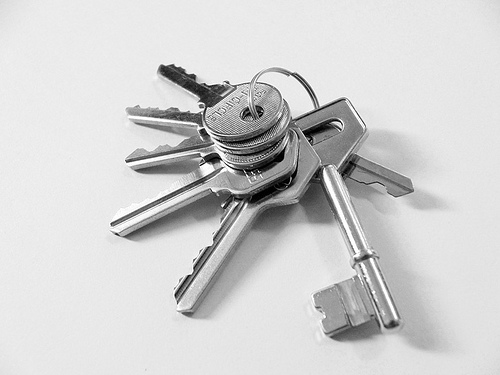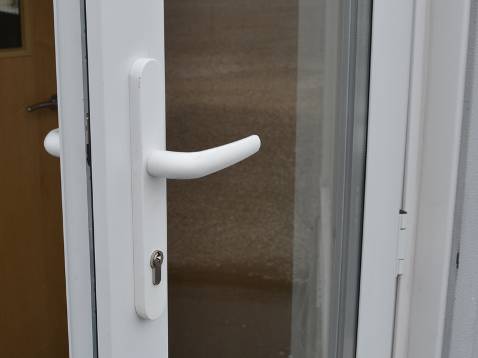Are you thinking about updating the security in your home? Or would you like to know the different types of locks available and their uses? Then we have included some answers to your frequently asked questions below.

1. My insurance company has advised that I have a five-lever mortice deadlock; what is this and how can I get one fitted?
‘Mortice’ means that the lock is fitted within the door itself. This is generally a rectangular hole in a piece of wood, rather than being screwed onto the front or rim of the door. ‘Deadlock’ means that the lock-bolt is not held in the keep by a spring, instead is extended manually by a key. The term ‘five-lever’ refers to the tumblers that prevent the lock opening in the absence of the true key. A typical five-lever lock has five levers, in which can provide a much higher level of security than a standard single lock. Insurance companies usually request that you have a five-lever mortice deadlock as they need to make sure the property is up to date on home security.
2. What locks should I have in order to comply with my insurance policy?
These can vary from one insurance policy to the next, so it is always important to check your individual policy. On external doors however, it is generally expected for you to have one of the following, depending on the type of door:
- Five lever mortice deadlock
- Multi point locking system (usually found on a UPVC door)
- Rim automatic night latch
3. Are wooden front doors safe?
Depending on the quality, thickness and age of the wood used for your front door, wooden doors are generally a lot safer than uPVC doors due to their ability to have various locking systems applied for different purposes, some of which include:
- Night Latch and Rim Cylinder
- 5 Lever British Standard Insurance Approved Mortice Lock
- Sash Jammer
4. How can I make my uPVC door more secure?
Due to the structure of uPVC doors, there are not many additional security measures available in comparison to wooden doors. Although, with the door itself holding weak properties, you could attempt to apply various lock types and sash jammers with no prevail. There are a few precautions that can be made when considering the security of your front or back door, including:
- Upgrading your euro cylinder lock to a high security dimple key lock – aptly named, these keys appear with dimples as the locks have ball bearings inside. Banham are the most commonly known retailer that sell these locks.
- Installing an anti-snap lock – this is to prevent unwanted visitors from attempting to snap the lock internally.
- Letterbox cage – this fits to the back of the letterbox and needs a padlock in order to keep it secured.
5. Can I improve my home security without changing the locks?
There are a few security measures that can be carried out in order to improve your home security. These are all very simple, yet many often forget to implement them in everyday life:
- Do not leave keys hanging inside the letterbox or under doormats, as these are the first places a burglar will check.
- If additional security measures are being undertaken, firstly it is important to ensure that the doors any locks are fitted to are secure and any rotting woodwork is replaced.
- If you are taking measures to apply additional security, be wary of how this may affect your ability to exit the property in an emergency.
6. What are the most common types of locks that are available?
The most common types of locks include:
5 lever BS insurance approved Mortice Dead lock – This can be fitted to a wooden door at waist height. The key appears as a flag shape, although there is no handle attached to this type of lock.
5 lever BS insurance approved Mortice Sash lock – Similar to the dead lock, this is also fitted to a wooden door at waist height with the same flag key shape, although a handle will be attached to this type of lock.
Rim Cylinder – Attached to a wooden door at shoulder height, the Rim Cylinder comes with a jagged edge key and can automatically lock behind you when the door is closed. This type of lock is teamed up with a night latch. If a locksmith is needed, where applicable, non-destructive methods can be used to open this type of lock.
Night Latch – Attached to a wooden door, this is the back part in which a rim cylinder fits.
Euro – This type of lock is fitted to a UPVC door and comes with a flat key. This lock can function in multiple ways. For example, the handle can be lifted, it can automatically be locked behind you and the key can be turned multiple times in order to engage the lock. Non-destructive methods can also be used to open this style of lock, where applicable. However, if you have lost your keys for example, gain entry and replace applies.
Multi point locking system – This is a brass strip in which runs the entire length of the UPVC door. However, if there are any problems with the lock such as a non-working handle, replacement mechanisms need to be ordered.

7. What kind of door is best for home security?
In terms of which doors are best for home security, quality locks are only as effective and secure as the door they are attached to. The door should be at least 44mm thick in order to support the mortice lock and three strong hinges. Wooden doors are generally stronger than uPVC doors, and can support a broader variety of lock types. The ideal front door would be a wooden door measuring 44mm thick with a five lever mortice deadlock, a spyhole and door chain or rim cylinder and night latch. All hinges should be secure and long screws and hinge bolts should be used.
8. If my lock is broken does it have to be replaced or can it be repaired?
Not necessarily. If your lock has broken and you can still gain access to your property but not lock it, it is possible that a professional locksmith will be able to repair this to keep costs down, as replacement locks are usually higher in price.
9. What types of additional security is available on my wooden front door?
Aside from the standard rim cylinder and night latch that many wooden doors have, there are a number of locks that can be added to improve security, including:
- Sash Jammer
- Banham Lock
- Door Chains
- 5 Lever Mortice Deadlock
10. My wooden door is quite old, can I still have additional locks fitted to improve security?
The age of the door isn’t necessarily the important aspect. The focus is more on the quality of the door in which the locks are being applied to, as you could have the highest form of security measures, yet if the door itself is rotting or the hinges are loose and not secure, then additional security is not being utilised.
11. Any important security measures that can be undertaken in order to prevent an intruder entering my home?
There are numerous precautions that can be taken in order to prevent an unwanted intruder from entering your property. Most of which are simple things that many forget to implement, including:
- Refrain from leaving keys hanging inside of your letterbox or under doormats and plant pots, as these are the first places a burglar will check.
- If you are taking measures to apply additional security to your home or business, it is important to be wary of how this may affect your ability to exit the property in an emergency.
- Consider if the door you are fitting additional security to is secure and any rotting woodwork is replaced beforehand.
12. What services can a professional locksmiths provide?
A professional locksmith company should be able to provide the following services:
- Gain Entry – To windows, doors, cabinets & safes.
- Repair or Replacement – Of handles, hinges or locking systems.
- Fresh Fit – Of new locks to wooden doors & windows.
- Installation – Of additional security.
- Fresh Keys – When changing or installing a new locking mechanism.
- Adjustment – Of doors that need to be re-aligned.
If you are thinking about updating the security in your domestic or commercial property, always be sure to use a reputable locksmith company, to ensure all work is carried out effectively.




